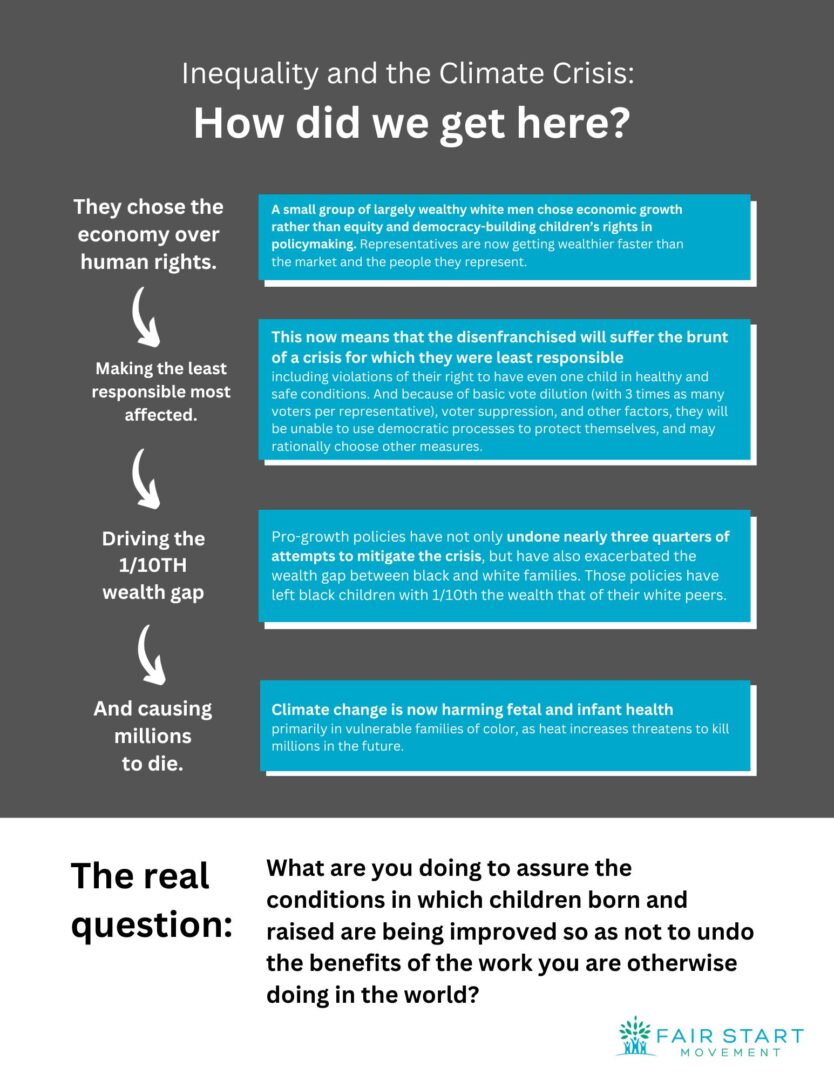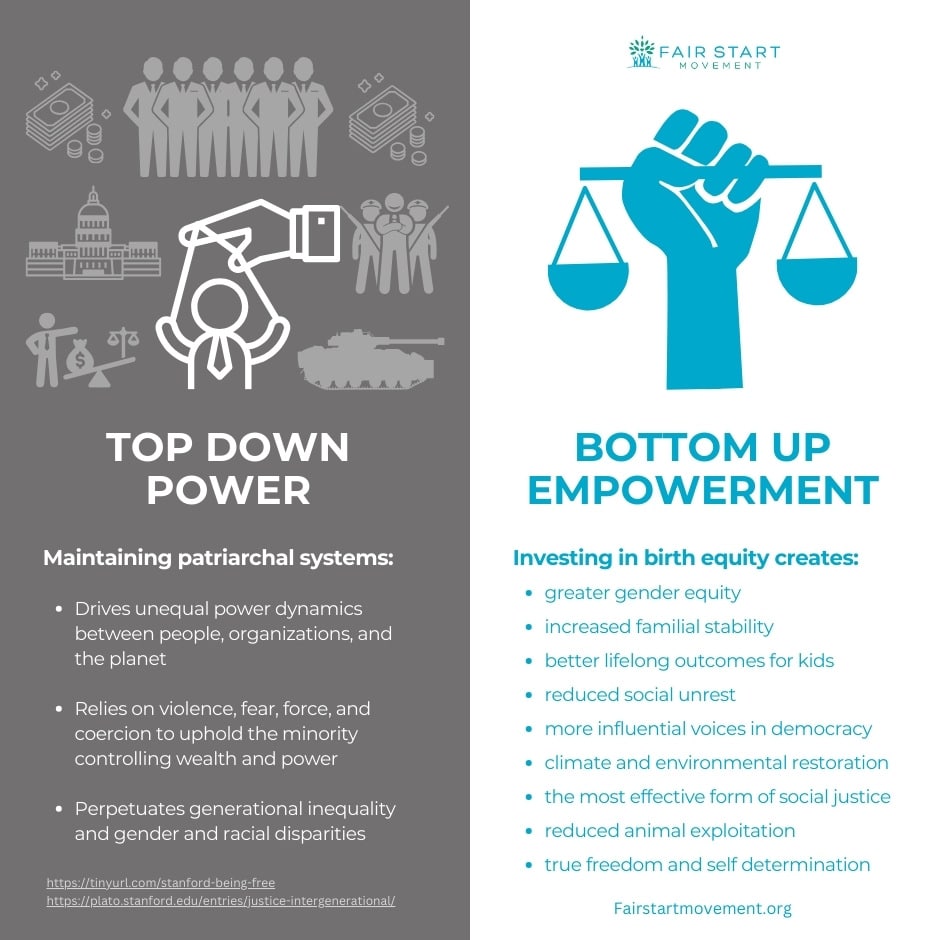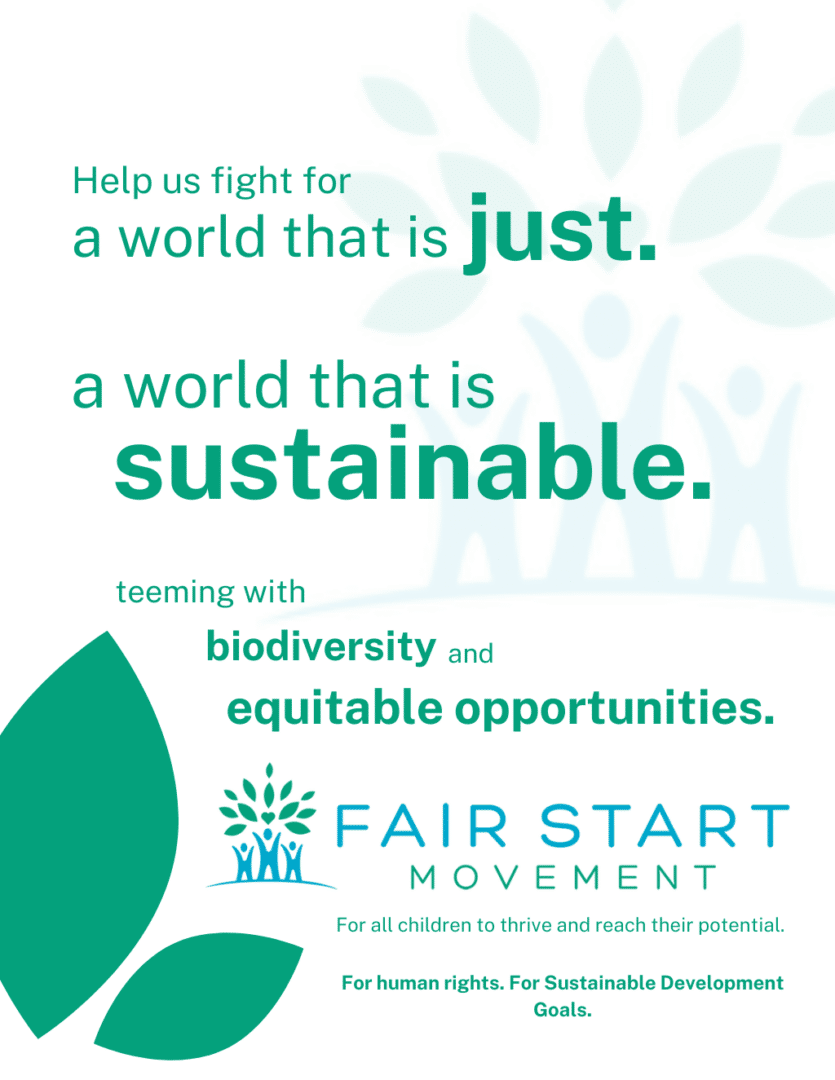In today’s rapidly evolving landscape of global challenges, a critical need has emerged—a pressing call for substantial reforms to steer us towards a fairer and more just society. At the heart of this urgent plea lies the imperative to prioritize children’s rights and birth equity in our policymaking processes, reshaping the foundation upon which our future stands.
The essence of this urgent appeal lies in the recognition that our current norms and policies lack a crucial element—a just creation norm that centers on children’s rights and birth equity as fundamental benchmarks for assessing costs and benefits. It’s a call for a paradigm shift, urging us to become a society capable of inclusively evaluating decisions based on the well-being of our children. This call is underscored by the looming climate crisis, which poses an existential threat to future generations. Our current growth-driven systems are proving to be exploitative, particularly for vulnerable communities and the generations to come.

Implementing these crucial reforms involves more than just words—it demands actionable steps. It requires us to challenge deceptive claims, advocate for objective standards, and support reparations aligned with children’s rights and climate justice. It’s about holding accountable those whose policies impact the future well-being of our children and the environment they will inherit. The vision for change isn’t merely a theoretical construct. It’s a clarion call to revamp our approach to policymaking, rooted in the values of inclusivity, justice, and sustainability. It necessitates redefining success beyond economic growth to prioritize the well-being of our children and the sustainability of our planet.
Born in response to the threats against children’s rights, the Fair Start Movement offers a universal model built upon the principle of self-determination. This model aims to eliminate threats and serve as the bedrock for legitimate and inclusive policymaking. Central to this endeavor is the acknowledgment that investing in children and ensuring birth equity is not just a gesture of goodwill; it’s a moral obligation. Prioritizing these aspects propels sustainable development, protects our environment, and upholds the rights of generations to come.

As we stand at this critical juncture, it is a collective responsibility for entities, policymakers, and individuals to rally behind these reforms. It’s a joint commitment to center children’s rights and birth equity in our policymaking, charting a course towards a future that is not only sustainable but also fair and inclusive.

In conclusion, the importance of establishing a fair start for all, anchored in the empowerment of our children and the preservation of our planet, cannot be overstated. Let us band together in this noble pursuit to create a world where every child has the opportunity to thrive in a sustainable and equitable environment.
This is what the fair start model is truly about.

